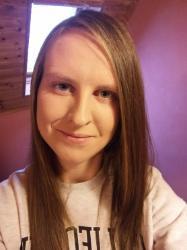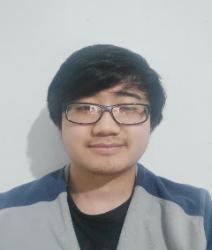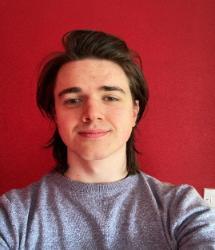- Welcome from the Head of College
- Current Undergraduate Students
- Graduate Studies
- Future Students
- International Students
- Research
- CACSSS Research Areas
- Research Impact
- Atlas of the Irish Revolution
- False Memories for Fake News in the Irish Abortion Referendum
- Atlas of the Great Irish Famine 1845-1852
- Hidden Galleries
- Movie Memories
- Between Two Unions: The constitutional future of the islands after Brexit
- Archive
- A Socio-Economic Study of Cork City Northwest Quarter Regeneration (CNWQR)
- Children’s Voices in Housing Estate Regeneration
- Cork Folklore Project
- Deep Maps: West Cork Costal Cultures
- Developing research to deliver high impacts in homelessness service provision by Cork Simon
- Moving On Ireland
- Project DaRT - Discussions and Reflections on Translation
- The Cork Folklore Project’s Memory Map
- The World-Tree Project
- The Augustinian Friars in Late Medieval Ireland
- (Re)Sounding Holy Wells
- Spotlight
- Speaking the Predicament: Empowering Reflection and Dialogue on Ecological Crisis
- Participatory arts for advocacy, activism and transformational justice with young people living in Direct Provision
- Make Film History Wins FIAT/IFTA Archive Achievement Award
- Dr. Marie Kelly (School of Film, Music & Theatre) co-edits : Scene 8 Volumes 1 and 2 (2021) – Special Issue: ‘Performance and Ireland’ (Intellect)
- The significance of humanities scholarship in challenging times
- Dr Sarah Foley, a Lecturer in the School of Applied Psychology, was awarded an NUI Grant for Early Career Academics in 2020
- NUI Awards Grant for #DouglassWeek: 8th-14th February, 2021
- Humanities for the Anthropocene
- Forgotten Lord Mayor: Donal Óg O’Callaghan, 1920-1924
- Architectural Space and the Imagination: Houses in Literature and Art from Classical to Contemporary
- Dr Siobhan O’Sullivan - Agency and ageing in place in rural Ireland
- Launch of new research cluster on 'Life Writing'
- What keeps us going?
- Through the lens of the secret police: Images from the religious underground in Eastern Europe
- Dr. Amanullah De Sondy - The Pocket Facts Guide for Jewish, Christian and Muslim People 2020
- Issue 19 of Alphaville published by The Department of Film and Screen Media
- Digital Edgeworth Network
- Make Film History: Opening up the Archives to Young Filmmakers
- Establishment of monthly online reading group on Abolition and Decarceration
- Dr Anne Marie Devlin (Applied Linguistics) published a special issue on Study abroad and the Erasmus+ programme in Europe
- Dr. Barbara Siller (Department of German), has co-published an edition on literary multilingualism.
- Postgraduate Researchers from MA in Medieval History produce Mapping Cork online exhibition
- Adaptation Considered as a Collaborative Art: Process and Practice, (Eds.: Bernadette Cronin, Rachel MagShamhráin and Nikolai Preuschoff
- (Non)Spectacular Infrastructure: Enacting Resource Circulation in Stages, Studios and Communities
- Dr. Clíona O’Carroll (Department of Folklore) has received an IRC New Foundations grant
- Dr Catherine Forde from the School of Applied Social Studies has been awarded an IRC New Foundations grant
- Elderly (non)migrants’ narratives of home: A comparative study of place-making in Ireland and Slovakia (EMNaH)
- Dr. Ken Ó Donnchú, lecturer in the Department of Modern Irish, has received an IRC New Foundations Award
- Decolonizing Irish Public Heritage
- EMBRACE - Exploring Mobility: Borders Refugees and Challenging Exclusion
- Dr. Marica Cassarino (School of Applied Psychology) awarded Royal Irish Academy and British Academy Knowledge Frontiers Network Funding
- CACSSS Postdoc wins Charlemont Grant
- Childhood, Religion and School Injustice by Karl Kitching
- New Collaboration between UCC, RTÉ and the Department of Culture, Heritage and the Gaeltacht
- Cork Movie Memories - Dan O’Connell and Gwenda Young (Department of Film and Screen Media
- Chronicles of COVID-19/Cuntais COVID-19’ initiative: testimony collection by Cork Folklore Project
- Dr. Rachel MagShamhrain (Head of Department of German) has published a co-edited collection on Adaptation
- Professor Caitríona Ní Dhúill (Department of German) has published a new monograph
- Two School Postdoctoral Fellows Awarded Royal Irish Academy and British Academy Funding
- Funding Success for Dr Joanna Hofer-Robinson
- New Collaboration between UCC, RTÉ and the Department of Culture, Heritage and the Gaeltacht
- CACSSS Postdoc wins Charlemont Grant
- Applied Social Studies team win ESWRA Outstanding Publication Award 2020
- CACSSS postdoc is awarded Maurice J. Bric Medal of Excellence at IRC’s Researcher of the Year Awards 2019.
- Past postdoctoral researchers in the College
- Dr Mastoureh Fathi
- Dr Michalis Poupazis
- Dr Richard Mason
- Dr Martin Wall
- Dr Rebekah Brennan
- Dr Tatiana Vagramenko
- Dr Anca Maria Șincan
- Dr Agnes Hesz
- Dr Gabriela Nicolescu
- Dr Kinga Povedák
- Dr Declan Taggart
- Dr Anne-Julie Lafaye
- Dr Ken Keating
- Dr Laura Maye
- Dr Martina Piperno
- Dr Brandon Yen
- Dr Annie Cummins
- Dr Rebecca Boyd
- Dr Sean Hewitt
- University Staff Recognition Awards
- CACSSS Welcome new MSCA Funded Fellows
- College of Arts, Celtic Studies and Social Sciences opens a research facility on Wandesford Quay
- IMMERSE
- CACSSS Wins Big at UCC 2018 University Staff Recognition Awards
- Upcoming Events
- Event Archive
- CACSSS Research Highlights 2012 - 2020
- Research News Archive
- IRC awards funding to 3 projects in the Dept of Archaeology: DAEICS - Digital Atlas of Early Irish Carved Stones (PI Dr Tomas O’Carragain)
- IRC awards funding to 3 projects in the Dept of Archaeology: NEW PASTURES (PI Dr Katharina Becker)
- CIPHER project shortlisted for Times Higher Ed (THE) Award
- CACSSS Researcher funded through HEA North South Research Programme with UU to explore Critical Epistemologies Across Borders (CEAB)
- Leabhar Nua ar an bhFiannaíocht/New Publication on the Finn Cycle
- Cork and Belfast north south prison-university classroom partnerships secure funding from government’s shared island initiative
- Women of the Borderlands: A Walking Biographical Study of Women’s Everyday Life on the UK/Irish Border funded through the HEA North-South Partnership
- Ultonia - Cultural Dynamics in medieval Ulster and beyond: a shared inheritance
- IRC awards funding to 3 projects in the Dept of Archaeology: IPeAT - Irish Peatland Archaeology Across Time (PI Dr Ben Gearey)
- Dr Edward Molloy, School of English and DH - wins Maurice J. Bric Medal of Excellence in IRC’s Researcher of the Year Awards 2020.
- Professor Claire Connolly (School of English and Digital Humanities) appointed to the Irish Research Council
- Dr Máirín MacCarron FRHistS wins the NUI Irish Historical Research Prize 2021
- ERC Hidden Galleries project publishes The Secret Police and the Religious Underground in Communist and Post-Communist Eastern Europe
- CACSSS researchers to host EPA funded online workshop
- €1.5 million ERC Starter Grant Award for Researcher in Dept of Music, School of Film Music and Theatre
- Three PhD students in Applied Psychology commence projects funded through SFI research centre Lero
- CACSSS Researcher co-authors paper for Science on the ‘ecological’ survival of rare manuscripts and texts
- 2021 Research Awardees recognised
- New Foundations Call 2022 open
- C21 Editions
- University College Cork and the Arts Council have appointed Alan Gilsenan as the 2019/20 Film Artist in Residence.
- School of Applied Psychology hold an open house showcase for People and Technology Research Group
- CACSSS Researcher secures major IRC Laureate award for project GENCHRON to explore gender, chronology and time in the Medieval world
- CACSSS Researcher secures major IRC Laureate award for project Cyber Social
- New York Times reports on CACSSS Researcher Dr Alexander Khalil’s (School of Film, Music & Theatre) collaborative music and neuroscience work
- project MUSLIMWOMENFILM project selected for publication in the ‘Results in Brief’ section of the European Commission’s CORDIS website
- GendeResearchIreland Symposium: Reflections on Institutionalising Gender Equality in Higher Education
- Community Engagement
- Careers & Employability
- Information for Guidance Counsellors
- Information for Staff
- Schools in the College
- People
Three PhD students in Applied Psychology commence projects funded through SFI research centre Lero
Lero is the Science Foundation Ireland Research Centre for Software a 13 partner consortium in based in UL with UCC as an academic partner. Lero’s research spans a wide range of application domains from driverless cars to artificial intelligence, cybersecurity, fintech, govtech, smart communities, agtech and healthtech. Leros research is organised around three strands, reflecting; Computer Systems, Engineering Methods, and Context. The Context strand addresses concern for the world we want, and reflects the need in computing research and development to move beyond the satisfaction of technical requirements, towards ensuring that systems meet ethical standards with respect to privacy, trust, inclusion and fairness, and also facilitating responsible innovation.
There is both an opportunity and a necessity for social science researchers to contribute to research on understanding the context in which computer systems operate, and researchers in Lero are committed to such interdisciplinary research. UCCs School of Applied Psychology have become centrally involved in Lero in recent years, led by Prof. John McCarthy, who is one of the Principal Investigators for the centre. In October 2021, two research projects commenced, led by researchers in the School of Applied Psychology, and funded through Lero.
 The first project, Sharing when Caring: Examining the Role of Digital Platforms as Social Support for Carers, is led by Dr. Sarah Foley and Prof. John McCarthy of UCC and Dr. Kellie Morrissey of the University of Limerick. PhD student Stephanie Murphy, a graduate of UCCs School of Applied Psychology, will work on the project, along with a colleague in UL.
The first project, Sharing when Caring: Examining the Role of Digital Platforms as Social Support for Carers, is led by Dr. Sarah Foley and Prof. John McCarthy of UCC and Dr. Kellie Morrissey of the University of Limerick. PhD student Stephanie Murphy, a graduate of UCCs School of Applied Psychology, will work on the project, along with a colleague in UL.
Issues related to developing and experiencing trust in the online context have traditionally focused on designing usable, trust-worthy interfaces, that ensure users feel safe in sharing (and creating) data. While these changes in data usage policy and practice are universal, for some users, such as carers (e.g. parents, family carers, professional carers) online spaces are much-needed outlets to seek social support, advice or information. This project will examine the implications of sharing online for carers, a group of potentially vulnerable internet users, who have traditionally created online communities as sites of support in often isolated living conditions. These challenges require both human-centred and software responses if there are to be meaningful outcomes for users.

 The second project, Deepfake Deception: Quantifying and mitigating the potential harm to trust, belief & memory, is led by Dr. Gillian Murphy and Dr. Conor Linehan of UCC, as well as Dr Mike Quayle (University of Limerick) and Dr Matthew Aylett (Cereproc/University of Edinburgh). Two PhD Students, Didier Ching and John Twomey, both graduates of UCCs School of Applied Psychology, will work on the project.
The second project, Deepfake Deception: Quantifying and mitigating the potential harm to trust, belief & memory, is led by Dr. Gillian Murphy and Dr. Conor Linehan of UCC, as well as Dr Mike Quayle (University of Limerick) and Dr Matthew Aylett (Cereproc/University of Edinburgh). Two PhD Students, Didier Ching and John Twomey, both graduates of UCCs School of Applied Psychology, will work on the project.
In recent years, there have been rapid developments in ‘deepfake’ software. Using AI, these programmes allow the creation of highly-realistic synthetic video and audio. While this has positive applications (e.g. allowing an individual to speak with their own voice if they have lost it through illness), there may also be extremely harmful effects on privacy (e.g., non-consensual ‘designer porn’), democracy, and trust in institutions (via misinformation, and fake news). This project will be amongst the first to investigate the responsible use of deepfake technology – quantifying potential benefits and harms, and developing strategies to limit negative impacts.
People and Technology Research Group, School of Applied Psychology
The People and Technology research group, led by Prof. John McCarthy and Prof. Lui Ciolfi, is committed to examining the role of technology in the everyday lives of individuals and communities. Our research explores both the role of existing technologies in people’s lives, and the potential of technology to improve quality of life. The group employ a number of methods within and beyond psychology to explore and examine topics including: Care; Health and Behaviour Change; Misinformation; Culture and Heritage; Communities and Technology. As the challenges and opportunities related to technology continue to unfold and develop, person-centred research that considers the complex and varied needs of users is vital.
